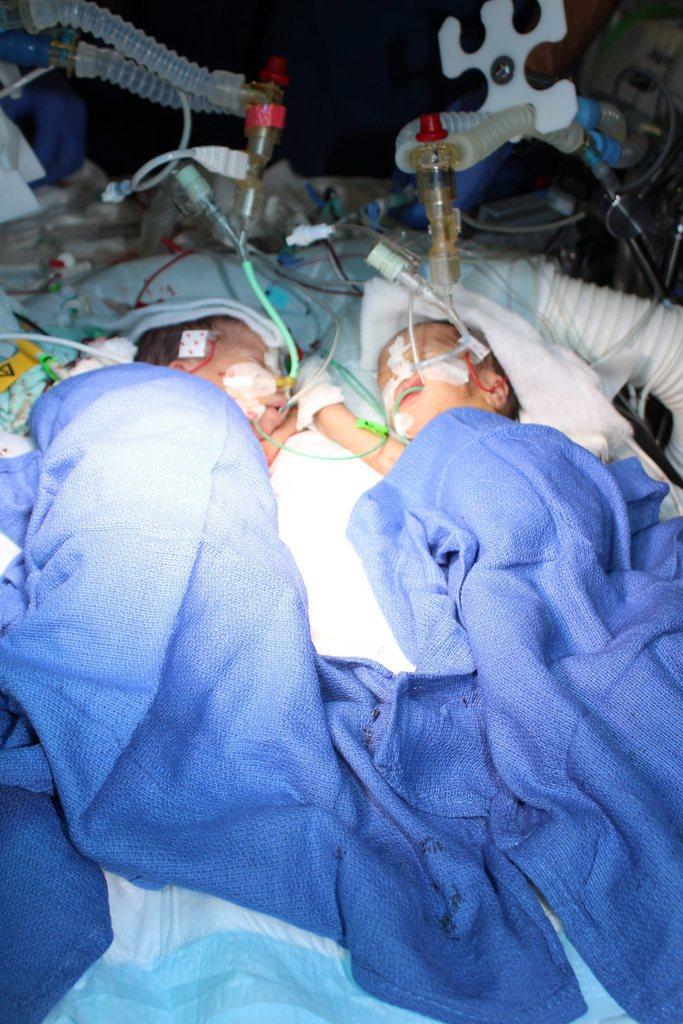
Week-old conjoined twins separated in Bern

In what is thought to be a world first, a set of conjoined twins have been separated at Bern’s Inselspital only eight days after their birth. The surgeons are talking of a “medical sensation”.
The two girls had been joined at the liver, pericardium (heart sac) and rib cage. They possessed all the vital organs but because their situation was deteriorating, on December 10 doctors were forced to perform an emergency operation, said the Inselspital and the participating University Hospital of Geneva on Sunday, confirming reports in the Sunday newspapers.

So far, so good, said head of paediatric surgery Steffen Berger. “They are now eating well and weigh twice what they did at birth.” Their current weights are 1,890 and 2,120 grams (4.2 and 4.7 pounds).
The doctors hope the girls will be able to leave intensive care in the next few weeks.
In Switzerland only two sets of conjoined twins who have survived separation have been born in the past 30 years.
Doctors at the Inselspital and the University Hospital of Geneva are not aware of any case in the world in which such young conjoined twins were separated. Normally doctors wait for three to six months before attempting a separation.
‘Medically uncharted territory’
The twins’ mother had given birth to triplets on December 2. A Caesarean section was carried out in the 32nd week of pregnancy.

The third girl was healthy but the twins weighed only 2,200 grams combined. Serious complications were caused by a lot of blood flowing through the liver from one twin to the other – one’s blood pressure was far too high while the other’s was too low and the girl was not receiving enough blood.
After discussions with the parents, who come from the Basel region, the multidisciplinary team decided to operate, entering “medically uncharted territory”, as they put it. The operation lasted five hours.
Mother and children were treated by experts from the fields of obstetrics, neonatology, paediatric intensive care medicine, paediatric imaging, paediatric anaesthesia, surgical nursing, paediatric surgery and paediatric heart surgery.
“We’re delighted,” the father told the SonntagsZeitung. “But it wasn’t easy. We discussed not continuing the pregnancy with the two conjoined girls and keeping only the third child.”
The doctors then told him there was a possibility of separating the twins. “After that it was clear: we’ll let them live. We have no right to kill them. You can’t want to have children and then no longer want them if there’s a problem. The children could be handicapped, but that doesn’t change anything for us. We’ll love them and accept them as they are.”

In compliance with the JTI standards
More: SWI swissinfo.ch certified by the Journalism Trust Initiative




























You can find an overview of ongoing debates with our journalists here . Please join us!
If you want to start a conversation about a topic raised in this article or want to report factual errors, email us at english@swissinfo.ch.